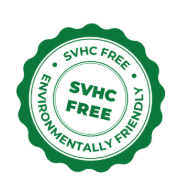Update on the Draft Law on Chemical 2025: Key Considerations for Enterprises
The Draft Law on Chemical (amendment) of Vietnam establishes rigorous regulatory provisions for the management of chemicals, directly affecting enterprises engaged in the production, trade, import, and transportation of chemicals. Below are the key highlights that enterprises should pay attention to.

1. Management of Specially Controlled Chemicals
The draft introduces requirements for organizations and individuals utilizing specially controlled chemicals to register their intended use and demand within a designated chemical database. Enterprises engaged in the trade of chemicals are permitted to sell specially controlled chemicals exclusively to entities or individuals that have duly declared the chemical type and its intended use in the specialized chemical database. Furthermore, entities licensed to trade such chemicals shall be subject to stringent oversight.
2. Chemical Product Lifecycle Management
The amended law mandates comprehensive management of chemicals throughout their lifecycle, encompassing production, circulation, and waste disposal, with stringent measures tailored to specific chemical categories. Enterprises are obligated to develop risk management plans, submit periodic reports, and ensure traceability of chemicals to mitigate environmental impacts and uphold social responsibility.
3. Chemical Storage Requirements
The draft stipulates that chemical storage facilities must comply with prescribed safety standards and undergo regular inspections. Hazardous chemicals shall be stored separately, equipped with warning systems and preventive measures against incidents. Enterprises are required to invest in compliant infrastructure and provide personnel training to ensure adherence. The requirement for Certificates of Eligibility for Chemical Storage Services shall take effect from July 1, 2026.
4. Prohibited Acts
The draft expands the scope of prohibited acts, including the unauthorized trading, transportation, or importation of chemicals; the use of chemicals that are prohibited or exceeding permissible thresholds in production; and non-compliance with safety regulations.
Conclusion
Enterprises are urged to review their chemical inventories, ensure compliance of storage facilities with safety standards, adhere to licensing procedures, and remain updated on the list of prohibited chemicals. Strict compliance with these provisions will mitigate legal risks and promote safe and sustainable operations. The Committee for Science, Technology, and Environment, in coordination with drafting agencies and relevant authorities, continues to refine the draft to ensure its quality and readiness for submission to the National Assembly at its 9th session of the 15th term.
This law shall take effect on January 1, 2026.




